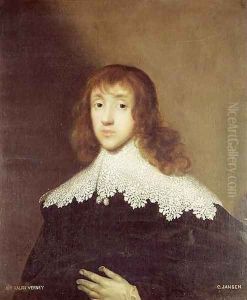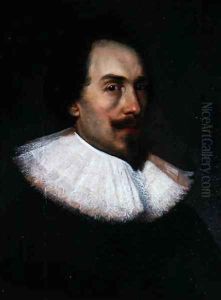Cornelius Jansen Paintings
Cornelius Jansen, often referred to as Jansenius, was not an artist in the traditional sense of painters or sculptors, but rather a significant figure in the history of the Catholic Church and the theological movement known as Jansenism. He was born on October 28, 1585, in the small town of Accoi, in the province of Leerdam, Holland (now part of the Netherlands), which was then under Spanish rule.
Jansen studied at the University of Louvain (Leuven) in Belgium, where he became deeply influenced by the teachings of Saint Augustine, especially regarding the nature of original sin and predestination. His studies led him to develop a stringent view on Catholic doctrine, one that emphasized the role of divine grace and predestination, and minimized human free will in the process of salvation. This perspective put him at odds with the Jesuits and the mainstream Catholic teachings of his time, which were more inclined towards free will.
Jansen's most notable work, 'Augustinus,' was published posthumously in 1640. In it, he argued for a return to the strict principles of Christianity as taught by Saint Augustine, which he believed had been compromised by the church. Although he intended to reform the church from within, his writings became the foundation of Jansenism, a movement that was quickly condemned by the Catholic Church as heretical due to its similarities with Protestant doctrines of predestination.
Jansen served as the bishop of Ypres in what is now Belgium from 1636 until his death on May 6, 1638. His theological legacy sparked a movement that led to a series of religious conflicts and political controversies, particularly in France, where Jansenism gained a significant following. Despite his death, the debates his work incited continued through the 17th and into the 18th century, influencing theological discourse, the politics of the time, and the broader Counter-Reformation within the Catholic Church.



